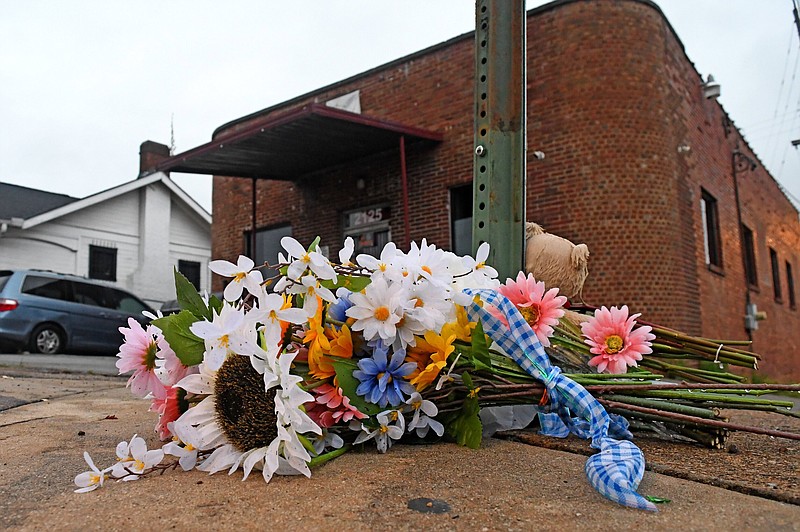As part of a gun violence prevention roadmap that Mayor Tim Kelly released in July, the Chattanooga City Council has entered a $250,000, one-year contract with a consultant, Trajectory Changing Solutions, to help devise and roll out a violence intervention strategy.
The vote comes several months after two consecutive weekend shootings in May and June left three people dead and 20 injured in Chattanooga. The incidents brought renewed attention to the threat of gun violence in the community, which city officials have said they are treating as a public health crisis.
Violence intervention initiatives interrupt cycles of gun violence by directly reaching people at the "highest and most immediate risk and providing them with intensive support, services and opportunities," according to the roadmap.
Multiple similar programs are either planned or underway in Chattanooga. Kelly's plan said the city would partner with a technical adviser and local nonprofit organization to enact a formal strategy.
"We knew that enforcement alone wasn't going to cut it," Kelly's chief of staff, Joda Thongnopnua, said in a phone interview Friday. "As we explored approaches, violence interruption programs did catch our eye because the data supports that there is a significant reduction in victimization and/or being a suspect of gun violence for folks who are participants in the program."
Norman Livingston Kerr, the founder of Trajectory Changing Solutions, said in a phone interview that his work will involve helping leaders develop a better understanding of the types of violent incidents that occur in Chattanooga, analyzing the time of day and days of the week they happen, and assessing existing programs to see where gaps may exist.
"We want to employ strategies that we know worked, that are evidence-based strategies, such as street outreach, violence interruption work," Kerr said. "This is something that has been evaluated several times in various different contexts, and it's been deemed effective."
According to the Chicago Sun-Times, Kerr previously oversaw violence reduction efforts in the administration of Chicago Mayor Lori Lightfoot before stepping down in 2021. Kerr told the Chattanooga Times Free Press he loved his time at the Chicago mayor's office, but he wanted to expand his scope to a national level.
Kerr also worked for an organization called UCAN from 2012 to 2019, where he led efforts to address violence in several Chicago neighborhoods, according to the Trajectory Changing Solutions website, and also spent 14 years with a program called Cure Violence, previously known as Ceasefire.
When he arrives in Chattanooga, Kerr said he plans to meet with city department heads, including Police Chief Celeste Murphy, but he also wants to speak to activists, residents and community organizations to see how they view the problem.
"I totally get that some folks would be a little leery or confused about bringing in an outside group," Kerr said. "I'm confident that we can be helpful. That's really what we want to be. ... We're not going to take any shine away from anything that's happening. We want to highlight that."
During an agenda review meeting of the council on Dec. 20, Councilwoman Demetrus Coonrod, of Eastdale, questioned why Chattanooga leaders were bringing in a consultant from a place with a high crime rate. How would the organization supplement the day-to-day outreach people were already doing in Chattanooga?
"I just don't think we've given them a fair opportunity to even really do the work, or we're micromanaging the work that they're doing," Coonrod said about local efforts. "We keep putting a Band-Aid on it ... but we're not addressing the bigger picture that's happening within our community."
Chicago does see high levels of violence, Kerr said, but the city also recently experienced a reduction in 2022. According to TV station WTTW, the number of homicides in Chicago dropped from 802 in 2021 to 688 in 2022. The tally in 2021 was the highest the city has seen since the 1990s, WTTW reported. There were 500 in 2019 and 776 in 2020.
"The strategies work," Kerr said. "Sometimes strategies work on a smaller level, and the reason they're not working at a larger level is because you're not at scale. ... Do you have enough workers? But, the strategies have been deemed effective. What we've seen in Chicago is that we just haven't been working at the scale that we need to for people to see those 20% drops consistently."
Kelly's administration recently set aside $3.7 million in federal pandemic relief funds for public safety and youth engagement initiatives, which was part of a larger $30 million spending plan the council approved in July.
"This is about leveling up as a community," Thongnopnua said Friday about bringing on a consultant specializing in violence intervention. "We have some fantastic, dedicated, passionate organizations in the community -- public servants and volunteers that have been doing similar work. This is about formalizing that work and supporting it in a new way."
Contact David Floyd at dfloyd@timesfreepress.com or 423-757-6249.
